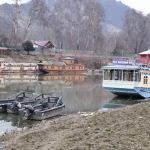Gowher Bhat
In the quiet village of Pulwama, Razia Bano, a mother of three, sells her hand-embroidered shawls to pay for her children’s private tutoring. “I earn ₹8,000 a month, but half goes to coaching centers,” she says, her voice tinged with exhaustion. “Government schools failed my eldest. What choice do I have?”
Her story is emblematic of a crisis gripping Jammu and Kashmir (J&K): once-revered government schools, now overshadowed by a booming ₹500-crore private coaching industry, struggle to reclaim their legacy as pillars of accessible education.
The Decline of a Legacy
In the 1980s, over 85% of J&K’s students attended government schools. Today, that figure has plummeted to 52%, according to the 2021 National Achievement Survey. The shift stems from a toxic cocktail of eroding trust, underfunded infrastructure, and the meteoric rise of private coaching centers promising “guaranteed results.”
“Parents see coaching centers as a lifeline,” explains Prof. Tariq Ahmad, an education sociologist at the University of Kashmir. “But it’s a false promise—many centers hire untrained tutors and prioritize rote learning over critical thinking.”
Government Steps In: Policies vs. Reality
The J&K administration, led by Education Minister Sakina Itoo, has launched ambitious reforms:
Infrastructure Overhaul: 1,200 schools upgraded with smart classrooms since 2022.
Teacher Training: 15,000 educators trained in modern pedagogy through partnerships with NCERT.
Student Incentives: Free textbooks, mid-day meals, and scholarships for girls.
Yet, challenges persist. At Srinagar’s Government Boys Higher Secondary School, cracked walls and overcrowded classrooms contrast sharply with Minister Itoo’s vision. “Funds are delayed, and bureaucratic hurdles slow progress,” admits a senior Education Department official, speaking anonymously.
Teachers: The Unlikely Catalyst
In the remote village of Doda, chemistry teacher Arshid Khan defies norms. Despite qualifying for elite private institutions, he enrolled his daughter in the local government school. “If we don’t trust our own system, who will?” he asks.
Khan isn’t alone. A 2023 survey by the J&K Teachers’ Forum found that 68% of government teachers still send their children to public schools—a quiet rebellion against the stigma. “When parents see my son excel here, they reconsider,” says Khan.
Parental Dilemma: Debt vs. Doubt
In Anantnag, carpenter Mohammad Yusuf has taken loans to pay for his son’s ₹20,000/month coaching. “My father studied in a government school and became a engineer,” Yusuf laments. “But today, even graduates drive taxis. I can’t risk my son’s future.”
Experts argue this fear is misplaced. “Coaching centers don’t guarantee success,” says Dr. Neelofar Khan, an economist at Central University Kashmir. “In fact, 60% of J&K’s civil service qualifiers in 2023 were government school alumni.”
Community Action: Seeds of Change
In Budgam, volunteers from the ‘Hope Foundation’ are bridging gaps. They’ve partnered with 30 schools to offer free evening tutoring—taught by retired government teachers. “Enrollment rose by 22% this year,” says coordinator Aisha Mir.
Meanwhile, social media campaigns like #MeraSchoolMeraGarv spotlight success stories, such as Baramulla’s Government Girls School, where students recently coded a water-conservation app.
The Road Ahead
Restoring J&K’s government schools requires a trifecta:
1. Accountability: Transparent fund allocation and faster infrastructure upgrades.
2. Community Buy-In: Teachers and local leaders championing public education.
3. Policy Innovation: Integrating vocational training and mental health support.
“This isn’t just about buildings,” Minister Itoo asserts. “It’s about rebuilding faith—one classroom at a time.”
For parents like Razia Bano, that faith is fragile but flickering. “If teachers fight for these schools,” she says, “maybe I’ll bring my children back.”
Note: Gowher Bhat is a Srinagar-based journalist and columnist focusing on education and socio-cultural issues. His work has appeared in “The Hindu” and “Greater Kashmir”.




